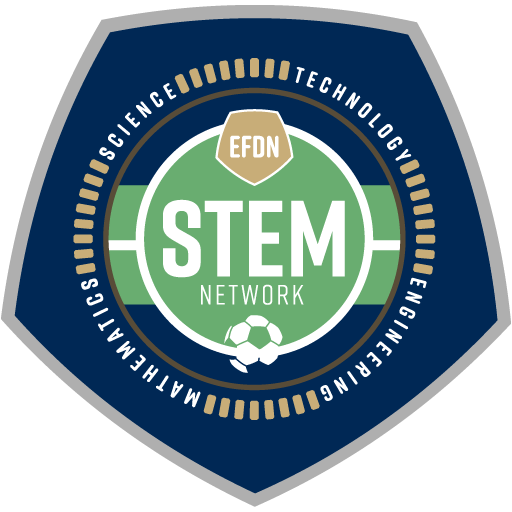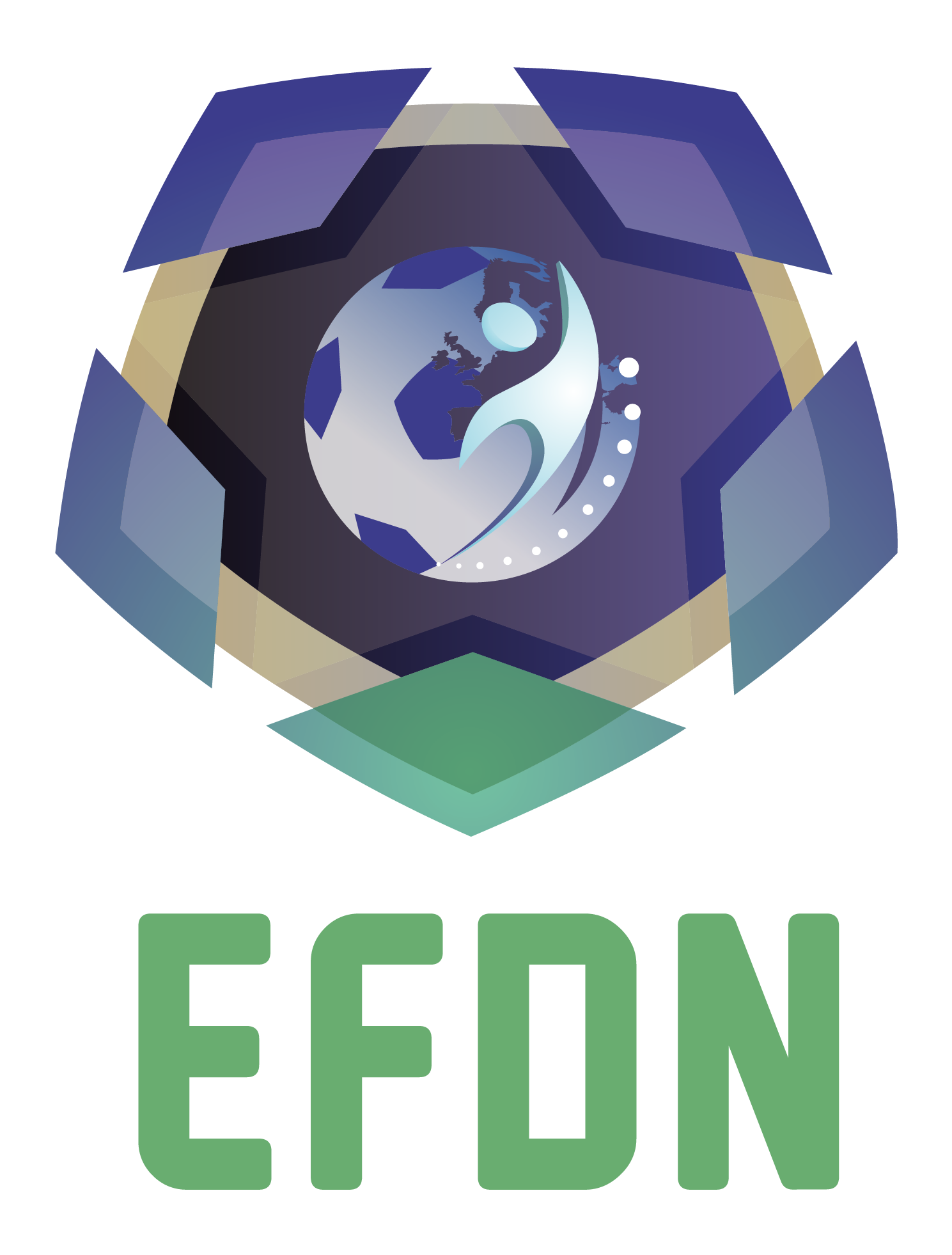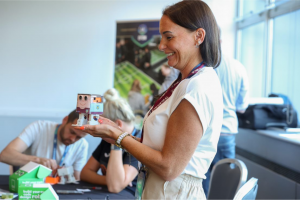Inspiring 2nd EFDN STEM Network Conference
EFDN hosted its virtual EFDN STEM Network Conference on 28 January. More than 20 clubs from across Europe have attended the conference.
EFDN Project Manager Lewis Walker kicked off the conference and talked about the purpose of the STEM Network. He highlighted the need to form STEM alliances among EFDN STEM Network members and STEM organisations across Europe. That way, our STEM Network can be a great platform to collaborate, exchange knowledge and share best practices. As the demand for workers with STEM skills continues to grow exponentially, there is a need to increase and improve the delivery of STEM education programmes. Several EFDN members have launched STEM-related initiatives, for example, Legia Foundation with their FUT-BOT projects, PSV Foundation is working with Brainport and Aston Villa Foundation, Chelsea FC, Everton in the Community and Feyenoord Foundation work with our EFDN STEM Football & Education programme partner Sphero Sports.
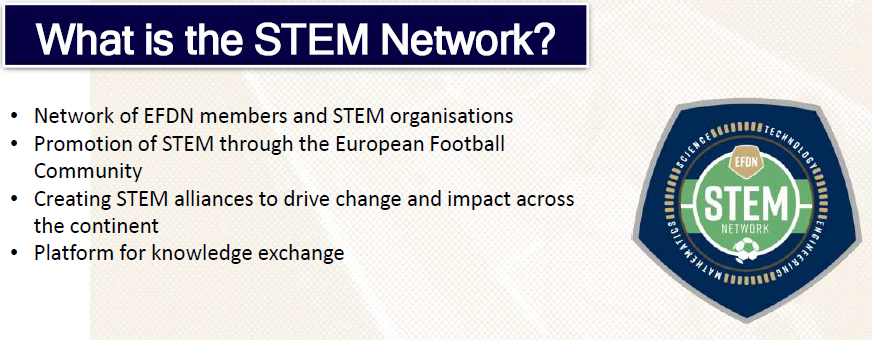
One of the objectives of EFDN is to come together four times per year to find new ways of delivering STEM programmes, establish STEM alliances in every country that is part of the network and have members that actively promote STEM in society. The plan for 2021 is to focus in each meeting on a specific theme based on the inputs from network members, raise awareness of STEM programmes in football and create a bigger network of clubs/FAs/leagues/STEM orgaisations until the end of 2021.
Secondly, Agueda Gras-Velazquez, Head of the Science Education Department of the European Schoolnet provided the participants with a detailed outline on STEM education, the benefits and practical implementation. Agueda showed that science naturally is around us all day and every day. However, children in classrooms look at the world in an abstract way, disconnected from what happens outside. By making sure, every classroom is connected to real-life, more students and people can pursue STEM careers in the future. Since the argument of teachers is that they do not have time for a specific STEM education programme since it usually does not fit their curricula, the solution of European Schoolnet is not to add new topics but to enhance them.
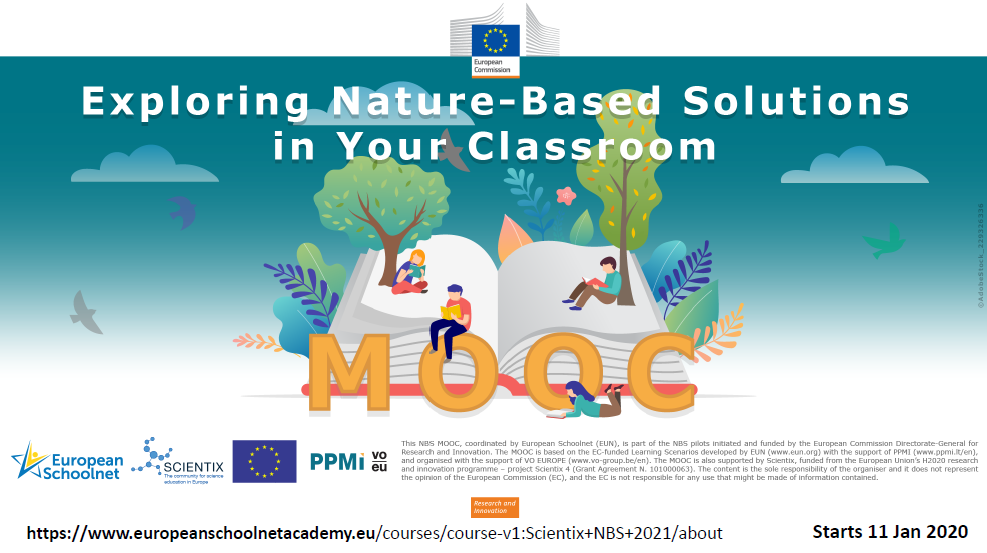
Agueda said: “You have a vast majority of teachers that are willing to improve if you give them guidelines.” Therefore, European Schoolnet creates learning scenarios with guides that explain how to address a topic. These guidelines are created in a scientific process and have an interdisciplinary approach. The learning scenarios are available in 15 languages.
Matt Mead from Sphero Sports talked about delivering STEM programmes as a sports foundation, school or CSR driven organisation. He is convinced that STEM is about being curious, asking questions but through fun and interesting means. STEM is much fun that “it immerses kids in the experience and makes them want to do it again, which inspires more learning”. Overall, Sphero Sports is a fun new way to make STEM accessible to kids but through football. This is an added value for clubs because even kids who have not been interested in sport before, form a connection to the club offering the activity. The Sphero Sports package does not only include the needed technology but also the support. “You’ll find yourself in a situation where the kids have more knowledge than you, this is where Sphero will help”, promised Matt,
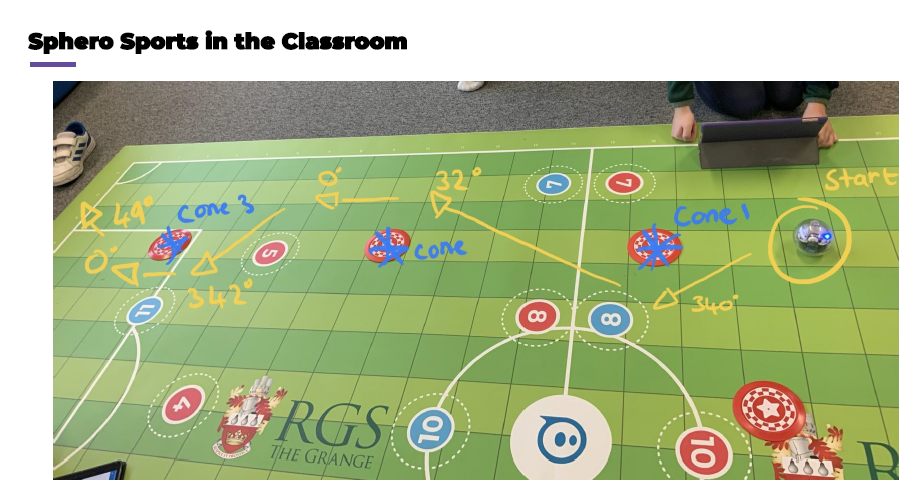
Not every child has to become a scientist after engaing since in STEM education programme. It is not just a fun, real-world way to teach technical skills but also teaches soft skills such as problem solving abilities, empathy and cooperation. Overall, Sphero Sports is convinced that “learning is not a spectator sport, so let’s play.”
Patrick van de Voort, Coordinator of PSV Foundation talked about the STEM-based collaboration between PSV Eindhoven and Brainport. The Brainport Region is a collaboration between 21 municipalities in the southeast of the province of Noord Brabant. It is the leading innovative high-tech region in Europe and called the smartest region in the world. The companies that formed Brainport Eindhoven – ASML, High Tech Campus Eindhoven, Jumbo, Philips, Royal Swinkels and VDL Groep – want to teach the values of innovation, collaborations and caring and build the reputation and attraction of the region. They work together with PSV to foster STEM skills among students.
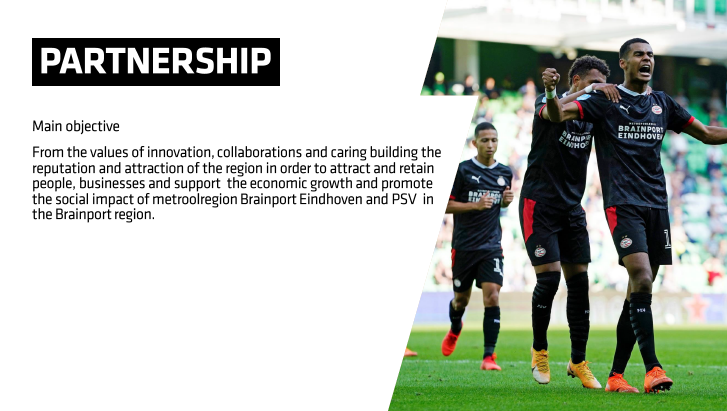
The school challenge for students between nine and eleven years old that will be delivered in 50 classes in the Eindhoven region will work on different themes and find solutions for challenges. A digital platform with all information for teachers, students and parents is available, supported by experts from the Brainport Eindhoven companies. The school challenge starts with a kick-off at the Philips Stadium where the kids sign a contract with the manager and take part in workshops and activities. The lessons are structured like a game plan with a pregame meeting, a warming-up, first half, half time, second half, evaluation and press conference. At the final event, the results from the lessons are presented to a jury with representatives of the Brainport Partners during Dutch Technology Week. After a speed challenge, there will be a final winner of the PSV Brainport School Challenge. The goal for the future is to be able to offer the PSV Brainport School Challenge at all primary, and eventually all secondary, schools in the Brainport Region.
The conferences ended with all attendees engaging in group discussions and breakout sessions.
All presentations available online
Download the presentations from the speakers here. Contact us for more information on the EFDN STEM Network.
